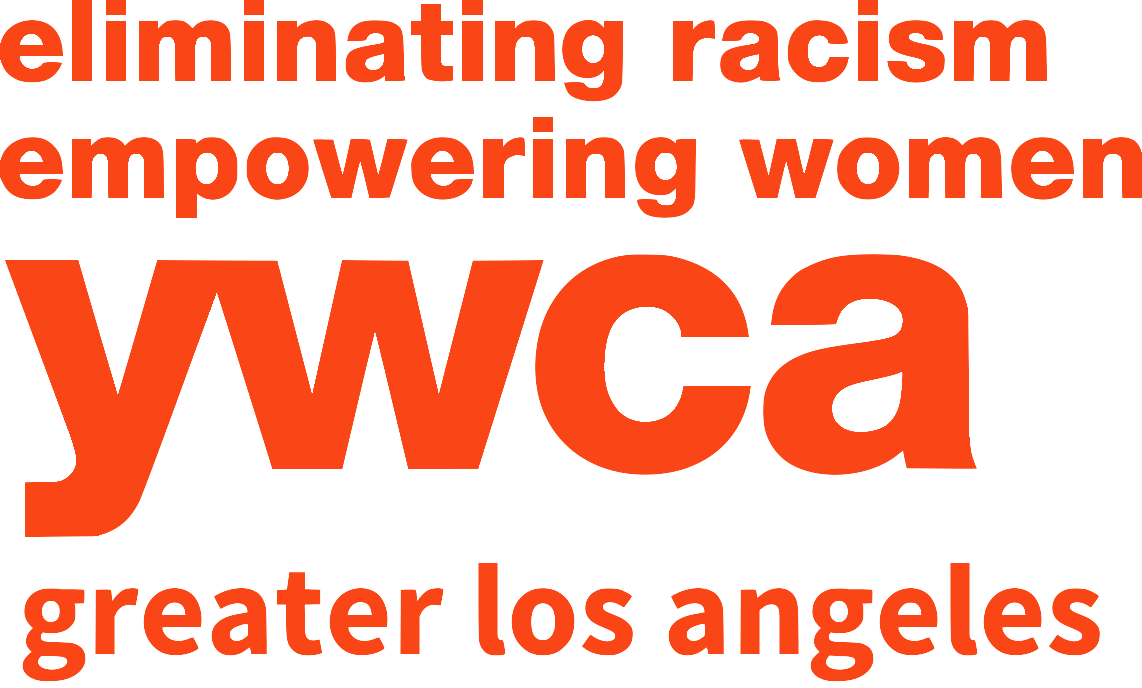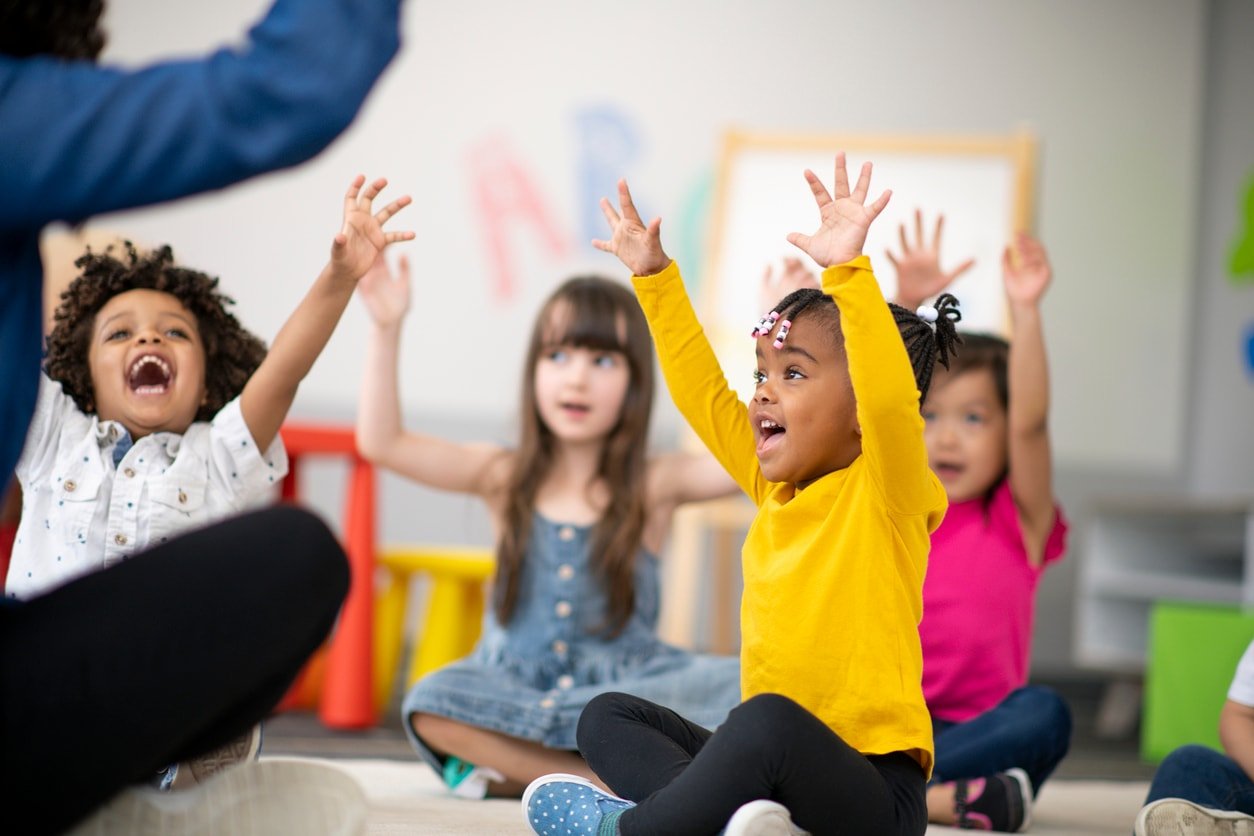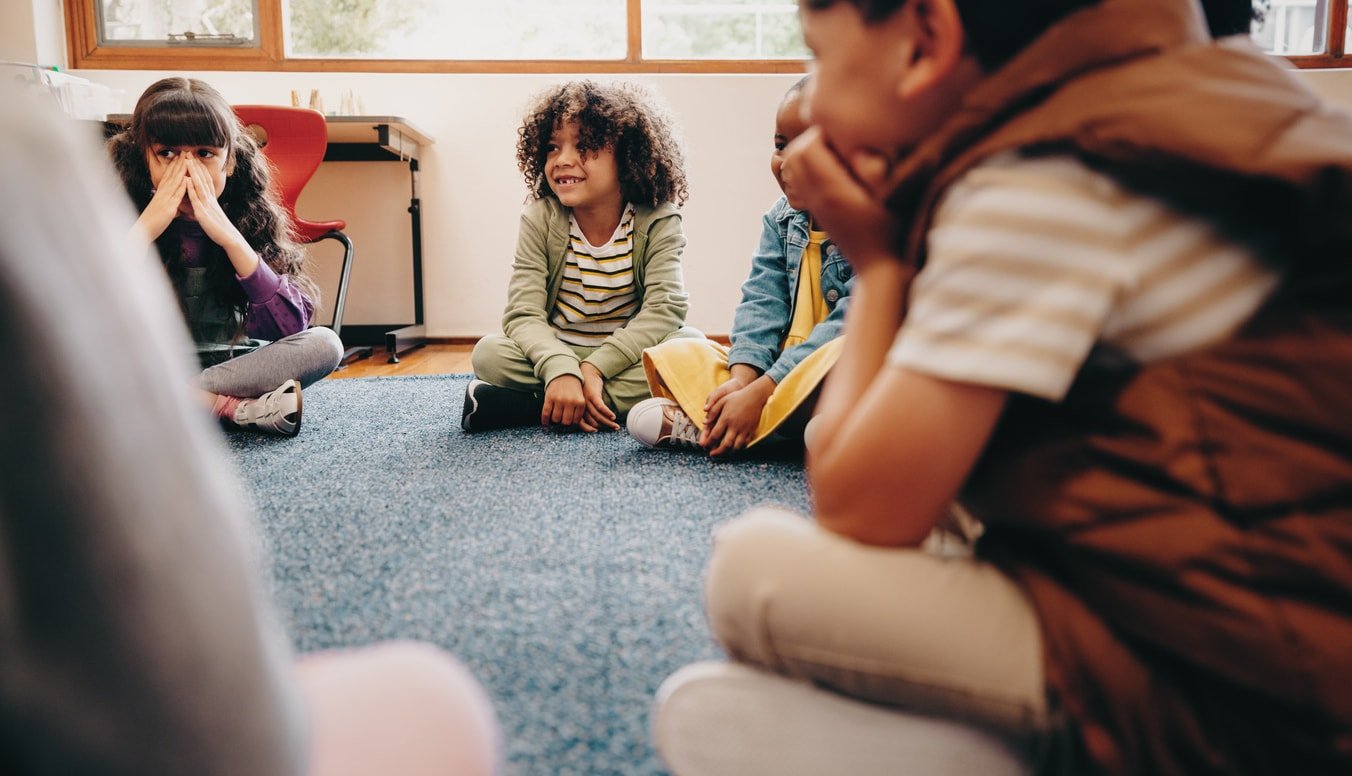Building Blocks for Success: How YWCA Greater Los Angeles' Early Childhood Education Program Prepares Children Ages 6 Months to 5 Years for Kindergarten and Beyond
The first few years of life are a critical time for children to learn, grow, and develop foundational skills that will shape their futures. At YWCA Greater Los Angeles, we believe every child deserves access to high-quality early education that sets them up for success—not just in kindergarten, but for a lifetime of learning.
Our Early Childhood Education Program offers families a nurturing, supportive, and enriching environment designed for children aged 6 months to 5 years. Through play-based learning, age-appropriate curriculums, and a strong focus on cognitive, social-emotional, and physical development, YWCA Greater Los Angeles is helping children thrive in their earliest years and beyond. Additionally, the program can serve as a foundation for those pursuing a bachelor's degree in early childhood education.
Here’s how our program is making an impact, and why it’s an essential resource for families in Greater Los Angeles.
Why Early Childhood Education Matters
Early childhood education is crucial for a child's development, laying the foundation for lifelong learning by promoting skills that influence both academic and social success. Research shows that young children who participate in high-quality early education programs experience:
Stronger academic performance in later years, including higher literacy and numeracy skills.
Improved social-emotional development, such as learning how to cooperate, share, and communicate effectively.
Reduced gaps in development, particularly for children from underserved communities.
At YWCA Greater Los Angeles, we focus on whole-child development to ensure each child builds the confidence and abilities they need to succeed—not just in school but in life.
What Makes YWCA Greater Los Angeles Different?
Our approach to early childhood education is guided by expertise, compassion, and our commitment to empowering families. Here’s what sets our program apart:
Our program offers valuable hands-on experience through practical learning opportunities.
1. Play-Based and Age-Appropriate Curriculums
We tailor our curriculum to the needs and interests of children at every stage of their early development. In teaching young children, we emphasize the importance of play-based learning, where children develop problem-solving abilities, creativity, and critical thinking skills in ways that feel natural and engaging.
2. Focus on Holistic Development
While academic readiness is important, we also emphasize understanding each child's learning process, including social-emotional growth, physical activity, and self-expression. Our program supports development across three key areas:
Cognitive Skills: Activities like puzzles, reading time, and problem-solving games encourage intellectual growth.
Social-Emotional Skills: Group play and collaborative tasks help children build relationships and empathy.
Physical Development: Daily physical activities improve motor skills and overall health.
3. Experienced Educators and Staff
Our team of trained instructors and child development specialists are deeply invested in every child’s growth. They create a warm, encouraging environment where children feel valued, supported, and safe. Educators are also trained to foster supportive interactions with children.
4. Family Partnerships
Parents and caregivers are a crucial part of every child’s learning journey. We partner with families through workshops, open communication, and frequent updates on their child’s progress, creating a community of support around each child. Our program adheres to ethical guidelines to ensure professional and respectful interactions with families.
5. Affordable Access for Low-Income Families
At YWCA Greater Los Angeles, we believe early childhood education should be accessible to all. Our program is designed to provide affordable, high-quality learning opportunities to families who need it most. Additionally, our program offers career opportunities for graduates in various early childhood education settings.
Creating an Optimal Early Childhood Classroom Environment
Creating an optimal early childhood classroom environment is crucial for promoting child development and learning in early childhood education programs. At YWCA Greater Los Angeles, we understand that the physical and emotional environment of a classroom plays a significant role in a child’s development. Our early childhood educators design classrooms that are safe, healthy, and supportive of each child’s unique needs and characteristics.
Our classrooms are thoughtfully arranged to include various learning centers, such as art, science, and literacy areas, fostering hands-on learning and exploration. These centers allow children to engage in activities that stimulate their curiosity and creativity, essential components of early childhood education.
Early childhood education degree programs, such as a bachelor’s degree in early childhood education, emphasize the importance of creating a nurturing and inclusive classroom environment. Our educators are trained to arrange the classroom to promote social interaction, creativity, and physical activity, while also ensuring the child’s safety and security. Incorporating natural materials and elements, such as plants and natural light, creates a welcoming and engaging environment that encourages children to explore and learn.
Flexibility and adaptability are key in our classrooms, allowing us to meet the changing needs of young children. We provide opportunities for both quiet reflection and active play, ensuring a balanced approach to child development. Prospective students interested in pursuing a degree in early childhood education should look for programs that emphasize the importance of classroom environment and design, as these skills are fundamental to fostering a positive learning experience.
By creating an optimal early childhood classroom environment, our educators provide a foundation for children’s future academic success and social-emotional development, setting them on a path to lifelong learning.
Prioritizing Health and Nutrition
Prioritizing health and nutrition is essential for supporting the overall development and well-being of young children in early childhood education settings. At YWCA Greater Los Angeles, we recognize that a child’s physical health is closely linked to their ability to learn and grow. Our early childhood educators promote healthy eating habits and provide nutritious snacks and meals, in accordance with the National Association for the Education of Young Children (NAEYC) standards.
Our early childhood education programs, including Head Start programs, place a strong emphasis on health and nutrition. We ensure that children have ample opportunities for physical activity and outdoor play, which are vital for their physical and mental health. Our educators are knowledgeable about common childhood health issues, such as food allergies and asthma, and are prepared to respond in case of an emergency.
The early childhood education major at many colleges and universities includes coursework on health and nutrition, with an emphasis on promoting healthy lifestyles and habits. Our educators encourage children to engage in regular physical activity, such as creative movement and outdoor play, to support their overall well-being. Early childhood education degree programs, such as the associate’s degree in early childhood education, often include a focus on health and nutrition, providing students with opportunities to gain hands-on experience.
We also understand the importance of sleep and rest for young children. Our classrooms provide opportunities for quiet reflection and relaxation, ensuring that children have the rest they need to thrive. By prioritizing health and nutrition, our early childhood educators provide a foundation for children’s future health and well-being, supporting their overall development and learning.
At YWCA Greater Los Angeles, we are committed to creating a holistic early childhood education experience that nurtures every aspect of a child’s development. By focusing on health, nutrition, and a supportive classroom environment, we help children build the skills and habits they need for a successful future.
Kindergarten Readiness and Lifelong Skills
Our Early Childhood Education Program doesn’t just prepare children for kindergarten. It equips them with skills they’ll use for life, such as:
Building routines and independence.
Learning to manage emotions and behaviors.
Developing communication and collaboration skills.
These critical skills help children transition into grade school with confidence, enabling them to excel academically and socially. Additionally, the skills developed in the program lay the foundation for future career success.
How YWCA Greater Los Angeles Supports the Community
Beyond individual growth, our early education program strengthens the broader Los Angeles community. By empowering families with resources, education, and care, we contribute to building a more equitable and resilient society. Our program also prepares children for success in public schools.
As part of our mission to eliminate racism and empower women, we specifically focus on supporting underserved communities. Our program ensures children from every background have the opportunity to thrive.
Join Us and Build a Brighter Future
Whether you’re a parent, an educator, or a community leader, there’s a role for you in building a brighter future through early childhood education.
Parents: Explore enrollment options and secure a place for your child in our program.
Educators: Join our mission and shape young minds in a supportive, dynamic environment.
Community Leaders and Donors: Advocate for early education and support our programs through donations or sponsorships.
Together, we can ensure every child in Greater Los Angeles has access to meaningful early learning experiences.
Take the First Step Today
Give your child the gift of preparation, confidence, and joy in learning. Learn more about YWCA Greater Los Angeles’ Early Childhood Education Program and how it’s shaping the future for children ages 6 months to 5 years.
Contact us today to inquire about enrollment today!
Frequently Asked Questions
1. What ages does the Early Childhood Education Program serve?
Our program is designed to cater to children between the ages of 6 months and 5 years, providing age-appropriate learning experiences that foster growth, development, and confidence.
2. What is included in the curriculum?
Our curriculum is tailored to focus on early literacy, social interaction, problem-solving skills, and creativity through engaging, hands-on activities. It’s designed to prepare children not just for school but for a lifetime of learning.
3. Are there financial assistance options available?
Yes, we believe every child deserves access to high-quality early education. We offer various financial assistance programs to families who qualify. Reach out to us for more information about scholarships or sliding scale opportunities.
4. What safety measures are in place?
The safety and well-being of your child are our top priorities. Our facilities meet rigorous safety standards, and our staff is trained in first aid, CPR, and child protection procedures. Additionally, we maintain secure environments and low teacher-to-child ratios to ensure close supervision.
5. How can I enroll my child?
Enrollment is easy! Visit our website or click here to inquire about availability. Our team is ready to guide you through the process and answer any questions.
6. Can I visit the program before enrolling?
Absolutely! We encourage families to schedule a tour of our facilities to meet our dedicated staff and see the learning environment firsthand. Contact us to arrange a visit at your convenience.



